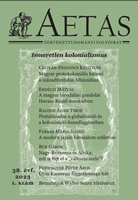Nagy-Britannia és Afrika: mit is fújt el a „változás szele”?
Great Britain and Africa: What Was Blown Away By “The Wind of Change”?
Author(s): Gábor BúrSubject(s): Cultural history, Governance, Diplomatic history, Political history, Social history, Post-War period (1950 - 1989), Transformation Period (1990 - 2010), Geopolitics
Published by: AETAS Könyv- és Lapkiadó Egyesület
Keywords: Great Britain; Africa; The Wind of Change;
Summary/Abstract: On February 3rd 1960 British Prime Minister Harold Macmillan gave a landmark speech in the South African Parliament. He stated that no one can resist the “wind of change”, the process of decolonisation. This represented a turn in British politics, that for more than a decade after India becoming independent was still trying to preserve as much as possible of its colonial empire, that was not that long ago the biggest empire in history. Letting go of the West African colonies was relatively easy, as the climate and the high population density made the region unfavorable for European settlement. However, there was a desire to turn South and East Africa into “the white man’s land”, therefore Britain was unwilling to give up its positions in this region. Macmillan changed this policy. The new course of decolonisation was not followed by everyone, in South Rhodesia, and primarily in the South African Union the white minority tried to resist the wind of change for a long time. Britain was unable to stop these attempts, therefore the decolonisation process dragged on for decades, concluding only in 1994.
Journal: AETAS - Történettudományi folyóirat
- Issue Year: 2023
- Issue No: 1
- Page Range: 89-100
- Page Count: 12
- Language: Hungarian

